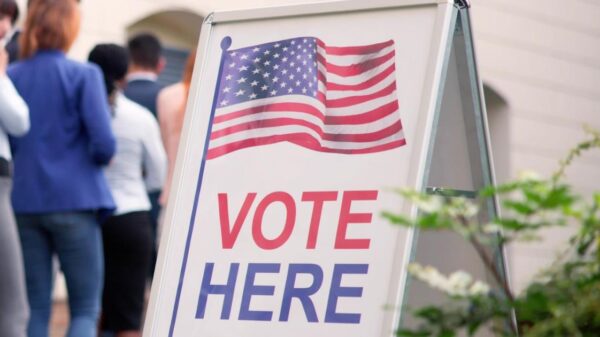Last week, freshman U.S. Rep. Michael Waltz, R-Fla., paired up with a leading Democrat to introduced a proposal to help boost STEM education at minority-serving institutions (MSIs).
U.S. Rep. Eddie Bernice Johnson, D-Tex., the chairwoman of the U.S. House Science, Space and Technology Committee, brought out the MSI STEM Achievement Act last week with Waltz as the cosponsor.
According to Waltz’s office, the bill will “improve participation in STEM at minority-serving institutions by increasing capacity for students in STEM curricula, encouraging partnerships with industry and federal laboratories and establishing a liaison for MSIs within the federal government.” The proposal also “directs the National Science Foundation (NSF) and Government Accountability Office (GAO) to better understand the challenges facing MSIs” and ensures “federal science agencies are actively engaging with MSIs to build research competitiveness and create opportunities for minority students to pursue STEM careers.”
When he talked about the bill last week, Waltz noted it would help historically black colleges and universities (HBCUs) including Bethune-Cookman University which is located in Volusia County, pasts of which the freshman Republican represents.
“Minorities make up 27 percent of the U.S. population but are severely underrepresented in STEM fields, only accounting for 11 percent of the STEM workforce,” Waltz said. “Minority-serving institutions like Bethune-Cookman University are key to improving participation and retention in STEM fields. Investing in STEM institutions that educate underrepresented populations will create a larger, more diverse STEM talent pool to fill the jobs we need to and make our country more competitive, including here in Florida’s Space Triangle.”
“With the demand for STEM skills at an all-time high, we must do more to increase the number of STEM graduates entering the workforce,” said Johnson. “However, it is increasingly clear that we cannot get there with a STEM workforce that does not reflect the diversity of the nation. MSIs have a proven track record of recruiting, retaining and graduating underrepresented minority students who are prepared to enter the STEM workforce. MSI programs and practices are also promising models for other universities seeking to increase the success of underrepresented minority students in STEM on their campuses. Unfortunately, a lack of resources and infrastructure necessary to compete for Federal research and STEM education funding have prevented MSIs from realizing their full potential to contribute to the STEM workforce. We must act quickly if we are to address the challenges of the 21st century and maintain our standing as the global leader in innovation. This bill is an important step in that direction.”
Johnson will be able to advocate for her bill as it goes to the Science, Space and Technology Committee where she wields the gavel. So far, Waltz is the only cosponsor and there is no companion bill over in the U.S. Senate.
Reach Kevin Derby at kevin.derby@floridadaily.com.


















